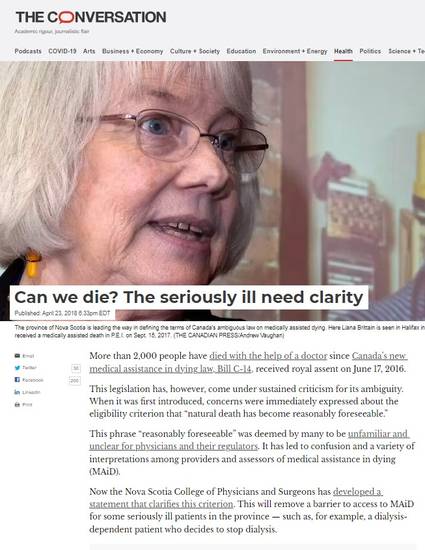
- euthanasia,
- end-of-life care,
- MAID
More than 2,000 people have died with the help of a doctor since Canada’s new medical assistance in dying law, Bill C-14, received royal assent on June 17, 2016.
This legislation has, however, come under sustained criticism for its ambiguity. When it was first introduced, concerns were immediately expressed about the eligibility criterion that “natural death has become reasonably foreseeable.”
This phrase “reasonably foreseeable” was deemed by many to be unfamiliar and unclear for physicians and their regulators. It has led to confusion and a variety of interpretations among providers and assessors of medical assistance in dying (MAiD).
Now the Nova Scotia College of Physicians and Surgeons has developed a statement that clarifies this criterion. This will remove a barrier to access to MAiD for some seriously ill patients in the province — such as, for example, a dialysis-dependent patient who decides to stop dialysis.
